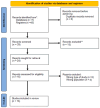Empathy and Parental Sensitivity in Child Attachment and Socioemotional Development: A Systematic Review from Emotional, Genetic, and Neurobiological Perspectives
- PMID: 40310085
- PMCID: PMC12025558
- DOI: 10.3390/children12040465
Empathy and Parental Sensitivity in Child Attachment and Socioemotional Development: A Systematic Review from Emotional, Genetic, and Neurobiological Perspectives
Abstract
Parental empathy and sensitivity play a crucial role in the development of child attachment and socioemotional growth, influencing emotional regulation, social skills, and psychological well-being. However, no comprehensive systematic review integrates emotional, genetic, and neurobiological perspectives.
Objectives: this systematic review aims to synthesize existing evidence on the relationship between parental empathy and sensitivity with child attachment and socioemotional development, integrating classical theories with contemporary findings and considering contextual factors such as adversity and intergenerational dynamics.
Method: searches were conducted for studies published between 1993 and 2024. Empirical studies examining empathy (affective, cognitive, and multidimensional), parental sensitivity, child attachment (secure, avoidant, ambivalent, disorganized, or DMM), and socioemotional development were included. A total of 16 studies met the inclusion criteria, encompassing longitudinal, cross-sectional, genetic, neurobiological, and experimental designs.
Results: key findings include the following: positive socialization predicted greater empathy, and self-regulation maternal anxiety reduced sensitivity and indirectly affected attachment; emotional empathy positively influenced sensitivity; genetic predispositions affected sensitivity through crying; neurobiological studies revealed altered PCC-amygdala connectivity in postpartum depression.
Conclusions: the findings demonstrate that parental empathy and sensitivity significantly influence child attachment security and socioemotional development through emotional regulation, genetic predispositions, and neurobiological mechanisms. This review provides a comprehensive framework for understanding the parent-child bond and highlights implications for evidence-based parenting interventions.
Keywords: child attachment; emotional regulation; genetic predispositions; neurobiological mechanisms; parental empathy; parental sensitivity; socioemotional development; systematic review.
Conflict of interest statement
The authors declare no conflicts of interest.
Figures
Similar articles
-
Assessing parental empathy: a role for empathy in child attachment.Attach Hum Dev. 2015;17(1):1-22. doi: 10.1080/14616734.2014.969749. Epub 2014 Nov 6. Attach Hum Dev. 2015. PMID: 25373381
-
Maternal History of Adverse Experiences and Posttraumatic Stress Disorder Symptoms Impact Toddlers' Early Socioemotional Wellbeing: The Benefits of Infant Mental Health-Home Visiting.Front Psychol. 2022 Jan 17;12:792989. doi: 10.3389/fpsyg.2021.792989. eCollection 2021. Front Psychol. 2022. PMID: 35111107 Free PMC article.
-
Copenhagen infant mental health project: study protocol for a randomized controlled trial comparing circle of security -parenting and care as usual as interventions targeting infant mental health risks.BMC Psychol. 2016 Nov 22;4(1):57. doi: 10.1186/s40359-016-0166-8. BMC Psychol. 2016. PMID: 27876079 Free PMC article. Clinical Trial.
-
Video feedback for parental sensitivity and attachment security in children under five years.Cochrane Database Syst Rev. 2019 Nov 29;11(11):CD012348. doi: 10.1002/14651858.CD012348.pub2. Cochrane Database Syst Rev. 2019. PMID: 31782528 Free PMC article.
-
A Systematic Review of Music Interventions to Support Parent-Child Attachment.J Music Ther. 2022 Dec 31;59(4):430-459. doi: 10.1093/jmt/thac012. J Music Ther. 2022. PMID: 36995776
Cited by
-
The Role of Parental Qualities in Supporting Children with ADHD.Children (Basel). 2025 Jun 27;12(7):845. doi: 10.3390/children12070845. Children (Basel). 2025. PMID: 40723038 Free PMC article.
References
-
- Bowlby J. Attachment and Loss: Vol. 1. Attachment. Basic Books; New York, NY, USA: 1969.
-
- Ainsworth M.D.S., Blehar M.C., Waters E., Wall S. Patterns of Attachment: A Psychological Study of the Strange Situation. Erlbaum; Hillsdale, NJ, USA: 1978. - DOI
-
- Main M., Solomon J. Discovery of an insecure-disorganized/disoriented attachment pattern. In: Brazelton T.B., Yogman M.W., editors. Affective Development in Infancy. Springer; Boston, MA, USA: 1986. pp. 95–124.
-
- Crittenden P.M. A Dynamic–Maturational Model of Attachment. Aust. N. Z. J. Fam. Ther. 2006;27:105–115. doi: 10.1002/j.1467-8438.2006.tb00704.x. - DOI
-
- Crittenden P.M., Landini A. Assessing Adult Attachment: A Dynamic-Maturational Approach to Discourse Analysis. WW Norton & Company; New York, NY, USA: 2011.
Publication types
LinkOut - more resources
Full Text Sources
Miscellaneous


